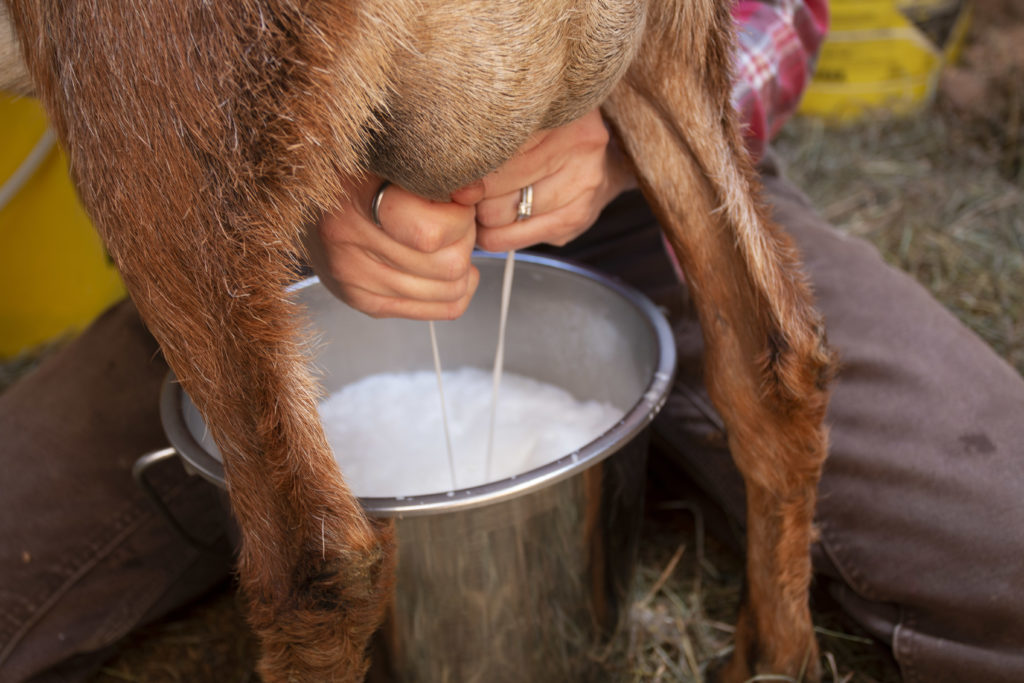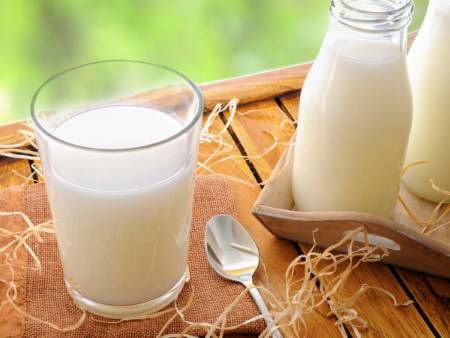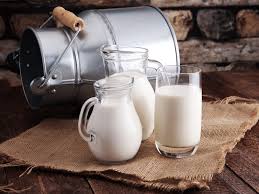Milking & Milk
Nigerian Dwarf Goats Milk!

GOAT MILK IS BETTER FOR YOU- Why?
Goat milk is easier for humans to digest than cow’s milk. It’s naturally homogenized, with smaller fat particles evenly suspended throughout the milk.
It contains vitamins, minerals, trace elements, electrolytes, enzymes, and proteins that are easier for humans to assimilate than similar content in cow’s milk. For these reasons, it’s typically digested in 20 minutes; whereas it can take 24 hours for humans to digest cow’s milk.
People who suffer from lactose intolerance may find that goat’s milk is a good alternative. Goat milk contains less lactose than cow milk and since it passes through the digestive system so rapidly, many who suffer from lactose intolerance have no difficulty with goat milk.
Goat milk doesn’t contain the complex protein compounds that stimulate allergic reactions to milk. People experiencing bloating, diarrhea, asthma, and irritability after consuming milk are usually suffering an allergic reaction to cow milk caused by these complex proteins. Goat milk; however, can typically be consumed without triggering these reactions.
Because goat milk soothes the digestive tract, is typically accepted by those with lactose intolerance, and doesn’t trigger milk allergies; it’s often recommended for infant nutrition and treatment of coronary diseases, cystic fibrosis, Crohn’s disease, intestinal disorders, gallstone problems, and many others.

Why Does Nigerian Goats Milk Taste so Good?
Nigerian Dwarf Dairy Goats produce goat milk that is 3 times higher in butter fat (cream content) than any other dairy goat.
There are many wonderful breeds of dairy goats.
Nigerian Dwarf milk has approximately 6 – 10% butterfat, as opposed to approximately 2 – 6% for other breeds. Since butterfat is what gives milk its sweet flavor, it’s the sweetest, richest milk of all the dairy goat breeds.

Tips to try if your Goats Milk tastes "off"
- Fast Chill when milking your goats. At AppleJo Farms we first clean the udder well and submerge our pulse milker into a larger bucket of ice water. This fast chills the goats milk from the moment it leaves the goats udder. It is allowing the milk to stay at a warmer temperature which causes it to start producing bacteria and will taste tangy or off. taking great care during the process to protect milk quality. Milk straight from the udder is sterile and I do my best to keep it very clean. Udders are individually washed with a soft cotton washcloth. You can use goat milk soap in the wash water to thoroughly clean and soften the udder. Here I have described my milking system which is done with a simple pulse “closed” milk machine. It has sanitary milk lines connected straight to a stainless steel milk bucket. That way, no dust, dirt, hair or manure can contaminate the milk. When you finish milking, use a clean wet wipe to clean the teats again followed with an application of organic coconut oil. This closes and sanitizes the orifice of the teat and prevents bacteria from entering the udder during the day and prevents the teat drying out and cracking.
- If you ever notice a metallic or chemical type taste to your milk, a shot of B Complex will clear it by next milking.
- What Does Nigerian Goats Milk Taste Like?
- People are generally shocked to discover that it’s creamy, sweet and mild – virtually indistinguishable from the best whole cow milk that they’ve tasted.
- This little kid loves it!

- For Safe Drinking: Keep Your Farm Kitchen Clean & Rinse your Milker and All Milk Containers well after a soak and scrub in hot bleach water.



Powered by Boutique Store Builder . Web Design by Avalon Rose Design.


